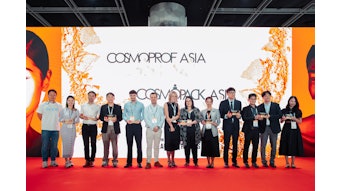Fast-moving consumer goods (FMCG) companies are not building a sufficient storehouse of knowledge and goodwill among influential groups that can help them weather the storm of a reputation crisis. This conclusion comes from a new study on the FMCG industry published by Millward Brown. It was carried out among over 100 journalists, academics and leaders of non-governmental organizations (NGOs) who follow the sector.
The results contrast sharply with good trust levels for the FMCG industry as a whole. A comparison of opinion former trust across eight commercial business sectors shows the FMCG industry gained the second top place, at 42%. Yet stakeholders appear reluctant to express the same level of support for individual FMCG companies.
Millward Brown’s study was conducted to demonstrate Reputation Asset Manager and Profiler (ReputationAMP), its newest thinking on measuring and understanding corporate stakeholder and influencer attitudes and behavior. Ed Coke, head of Millward Brown’s corporate practice, which has spent two years developing the methodology, said, “We believe these results send a strong message to chief executives and senior leaders of FMCG companies: generically your industry scores well on trust, so there’s goodwill to be had. And some companies are making great efforts to improve their relationships with key stakeholders. But many are simply missing out.
“These companies may have product brands that, right now, consumers love. But their corporate brands do not yield the same loyalty among the audiences that drive debate and opinion. An overwhelming majority of stakeholders we questioned expressed neutral or negative views about companies and how well they performed on key issues such as social responsibility, being ethical and dealing fairly with supply chains.
“It should set alarm bells ringing. Increasingly customers are showing concern about these issues. In the age of social networks when bad news can go viral in minutes, all companies should be working hard to build a storehouse of credible and positive goodwill from which they can draw during difficult situations,“ he concluded.
The study highlights the need for companies to get under the skin of all their main influencers and stakeholder groups across the spectrum of shareholder activists, media commentators, NGOs and ethical consumers. Coke adds, “An organization needs to identify the key interests and concerns of their most influential audiences, now and in the future. From this they can develop authentic actions that are delivered in the right way, and communicate the results direct to the audiences who want to hear about them.”
ReputationAMP methodology draws on the combined expertise of Millward Brown’s corporate research practice and their collaborative partnerships with clients and academics. The methodology is adaptable to any industry or organization. The results can help a business plan how best to build, sustain or defend a reputation, or recover credibility following a damaging experience.
“Across the world the industry faces mounting pressures from informed consumers and influential stakeholders,” Coke notes. “Technology is helping customers and opinion formers exchange news faster and more widely than ever. Our study confirms the era of telling is over: people want debate and open, honest discussion. Companies need to create reputation strategies that tap into this desire, finding opportunities to inform and educate.”
Other key report findings include:
- Low familiarity discourages recommendation: on average only 19% of opinion-formers said they were likely to recommend a top name FMCG company. When contact was more frequent, the likelihood of advocacy rose to 43%.
- Advocacy opportunity: on average 61% of those interviewed have a neutral view of FMCG companies. This presents a significant opportunity to convert these opinion formers to positive advocates.
- Lack of communication with stakeholders: while an average of 38% of those questioned felt they knew particular FMCG companies, only 12% received frequent communication from them.
- Perception of poor performance: an average of just 18% of stakeholders questioned believe FMCG companies “deal fairly with their suppliers,” an issue cited as a top-three reputation issue among media, academics and NGO leaders.










